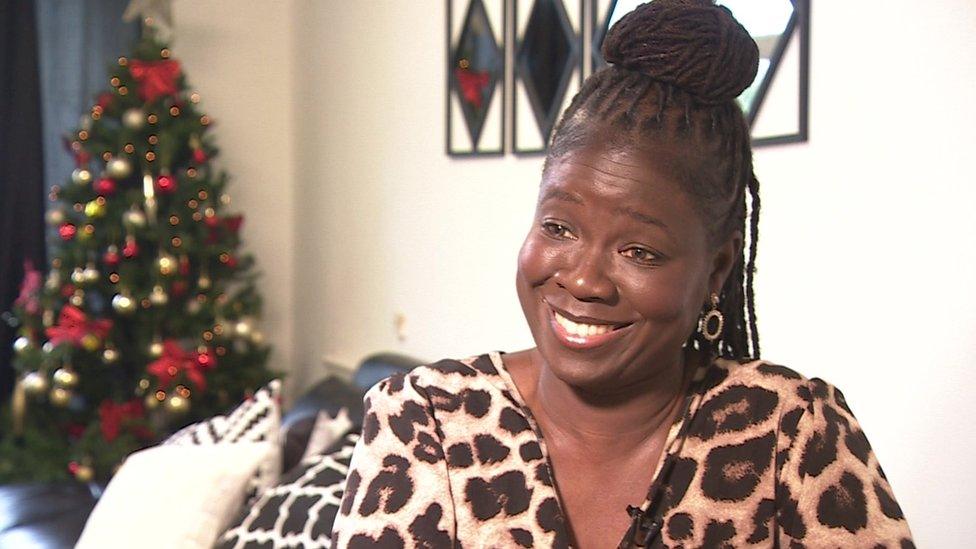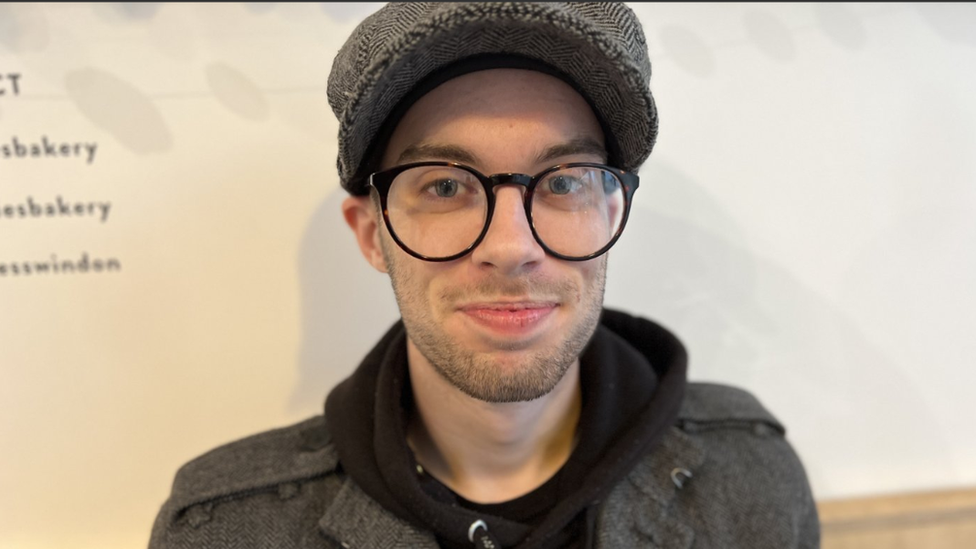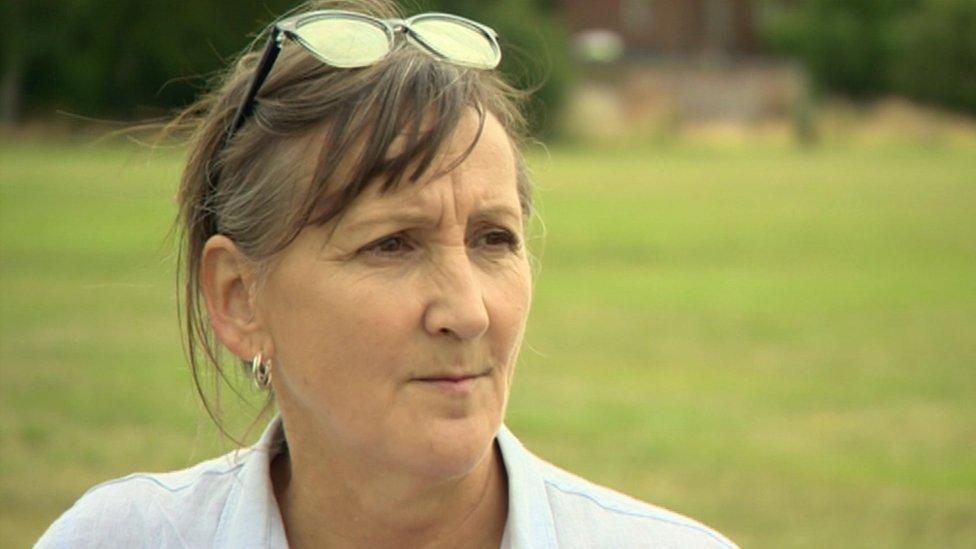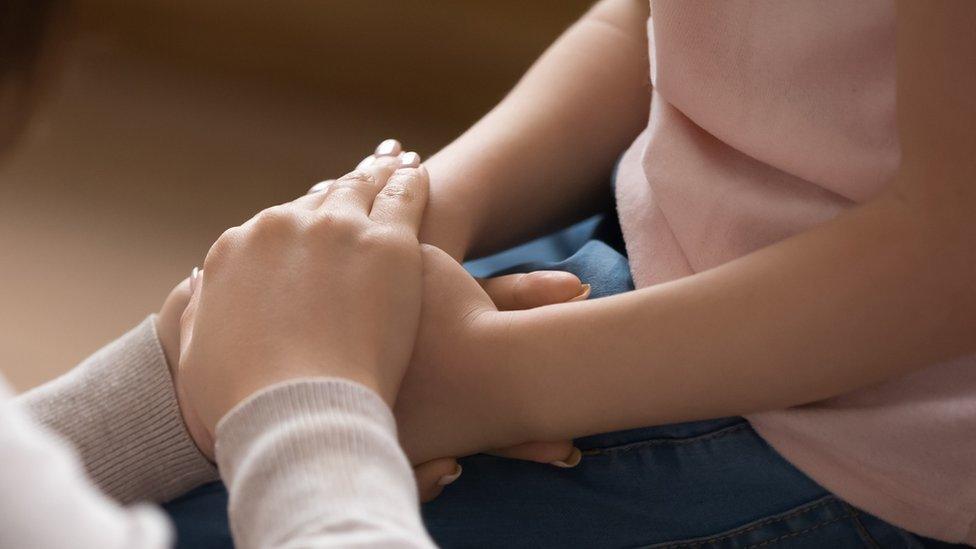Oxfordshire foster mum urges more diverse carers to sign up
- Published

Claudia has been fostering children for more than 10 years
A foster carer is urging more people from ethnic minorities to take in children.
Recent figures show a higher proportion of children in care are from diverse backgrounds, compared with numbers of carers from the same communities.
Keeping children with families from the same background can be important to their development, a charity said.
Foster mother Claudia said she believes the lack of diversity among carers is due to fear.
Originally from Ghana, Claudia lives in Oxfordshire and has been a foster parent for more than a decade.
"I always had that interest, passion and desire to do it," she told the BBC.
"I remember being about 16 and getting all this information and filling out the forms."
Claudia was fostered herself for five years, and when she and her husband were in their early 20s they took in two brothers who are still with them more than 11 years on.
Foster care offers children and young people a home when they cannot live with their birth families.
According to the Department for Education, 71% of children in care were white and 22% were from ethnic minority backgrounds, as of 31 March.
The most recent figures from Ofsted, which records foster carer numbers, show that by the same date 81% of registered foster carers in England were white and 15% were from ethnic minority backgrounds.
'Heritage and culture'
Claudia said she believes the lack of black, Asian and minority ethnic foster carers is "because of fear".
She said that within her community "there's this fear that there's going to be a lot of professionals, such as police, or social workers in and out of your house".
"People like to say they don't see skin colour but that's a lie, we do, no-one is colour blind," she said.
"Stereotypes are already inherently in us so a child, whether they are aware of it or not, is being treated in a particular way.
"Our hair is completely different, my hair is part of my identity and for it not to be looked after in a certain way means it can be damaged - ripping and stripping away parts of me - and that is what is happening to children who are not being looked after holistically."
Sarah Thomas, from The Fostering Network charity, said it was important to have more social workers from diverse backgrounds so that when they are assessing and recruiting foster carers they have an understanding of those diverse communities.
She said: "We should do everything that we can to make sure they [children in care] are able to be cared for with their heritage and culture respected and empowered and make sure that it's celebrated."
Claudia said she had faced challenges herself when looking after a 15-month-old white baby.
"I've had to do my research," she explained. "Her hair is different to hair I've looked after.
"I've had to realise I can't put certain products into her hair. There's things I'm having to learn."
She added: "I would love to see a rise in people from the BAME community going into fostering. I know that sounds so simplistic but it's not.
"There's a self-fulfilment that you get from being a foster carer but, besides that, there are children that need you and there is something that you could give."

Follow BBC South on Facebook, X, or Instagram. Send your story ideas to south.newsonline@bbc.co.uk.
Related topics
- Published4 December 2023

- Published9 August 2023

- Published5 August 2023
